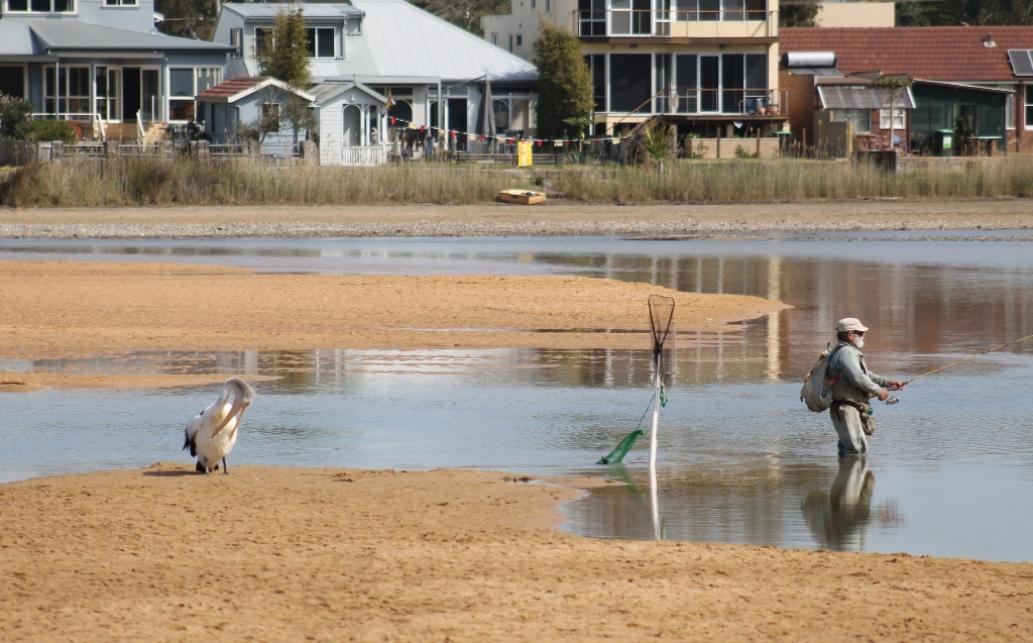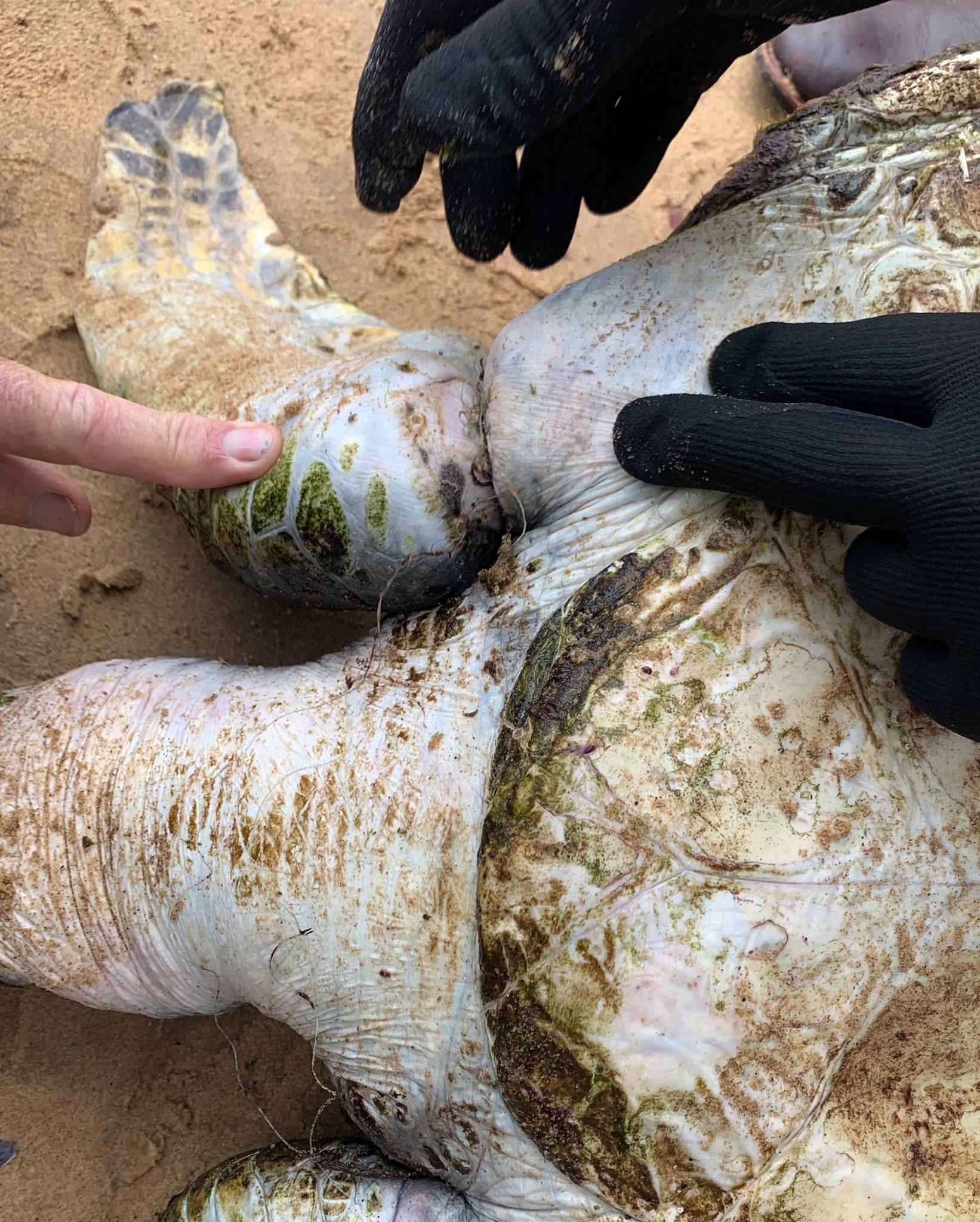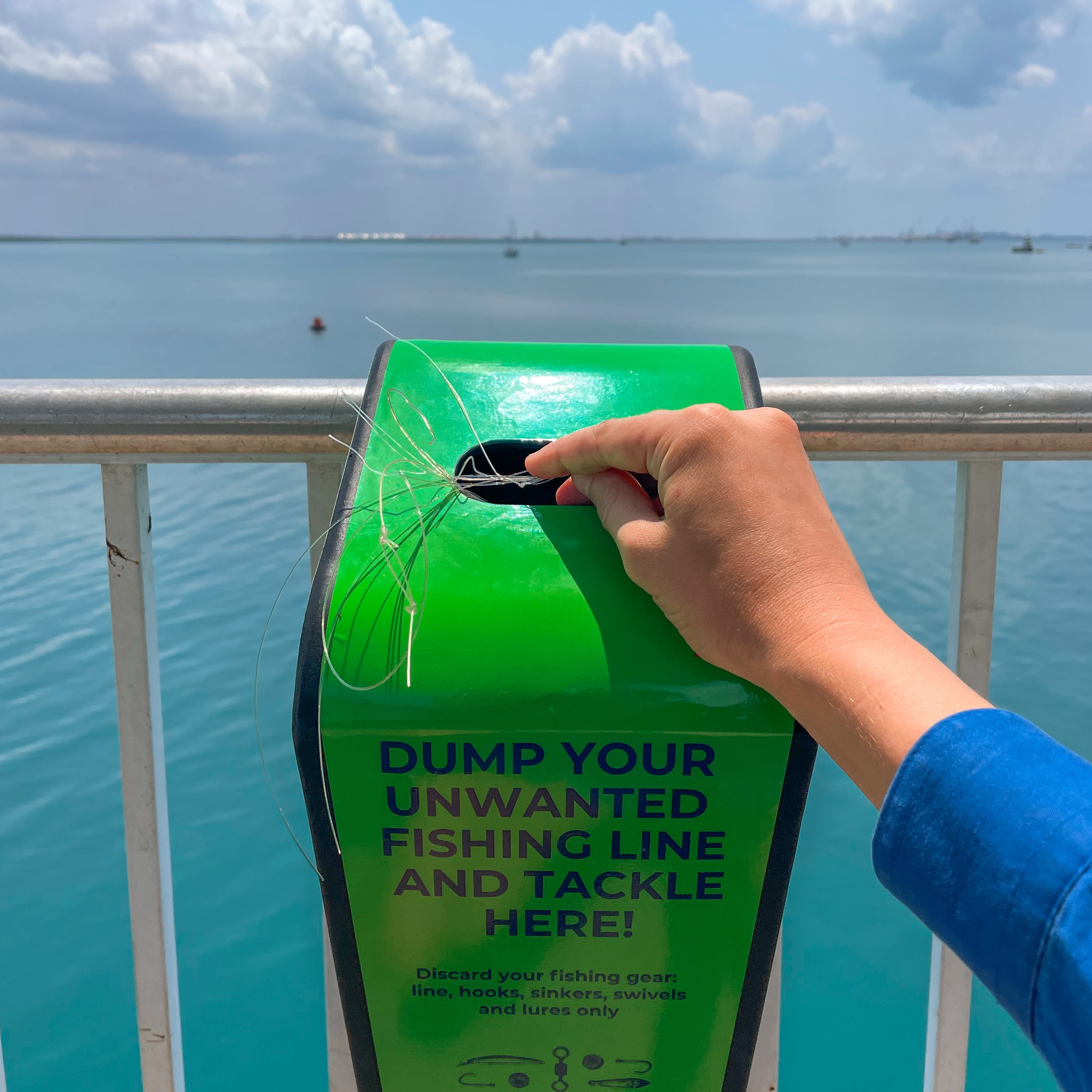Council rolls out fishing tackle bins at Ten high use spots

Northern Beaches Council are 'coming aboard' efforts to tackle fishing waste with tangle bins being installed at 10 popular fishing spots across the peninsula, making it easy to dispose of your unwanted tackle.
Keep your favourite fishing spots clean and safe for wildlife and your mates!
What can you put in the bins?
- Fishing line
- Rinsed bait packaging
- Hooks
- Lures
- Sinkers
- Swivels.
NBC have fishing tangle net bins in:
- Fishermans Beach
- Sangrado Jetty, Seaforth
- Manly Dam (sections 1 & 3)
In January 2025, Council is collaborating with OZFish and NSW Environment Protection Authority (EPA) to install an additional 6 fishing tangle net bins at the following locations:
- Little Manly Point Park
- Narrabeen Lagoon Bridge area
- Pelican Path at Lake Park Road, North Narrabeen
- Ellery’s Punt Reserve, Clontarf
- Newport Jetty
- Berry Reserve, Narrabeen
Bins will be monitored for usage and contents recycled through the OZfish Tackle Loop program, as well as audited to see what fishing waste is being prevented from contaminating our local environment.
Make sure you make use of these bins if you are fishing in the area. Disposing of your unwanted fishing line and tackle waste appropriately will help keep our coastlines clean and safe for children and wildlife.
Data from the Australian Marine Debris Initiative Database shows that fishing line makes it into the top 10 items found during clean-up events, with over half a million metres removed from over 4,000 clean-up events (by 2023).

- plastic bags and other waste, which the turtles mistake for jellyfish
- cigarette butts
- fishing lines and hooks
- boat and propeller collisions
- entanglement and drowning in nets, ropes, floats or traps
- habitat destruction
- poor water quality and seagrass depletion
- deliberate acts of cruelty
- disease
- appropriately dispose of your rubbish
- collect litter on or near the waterways
- when boating, travel slowly over seagrass beds
- report people engaging in illegal netting or trapping
- help in coastal health projects (e.g. seagrass monitoring)
- join your local animal rescue and care group
- report sick or injured turtles to your local NPWS office.
About the enlarged OZfish Tackle Loop program - EPA and OzFish: Litter grant big catch for NSW fishing community.
On November 26, 2024 it was announced litter at recreational fishing spots is being reeled in by 50% in the next five years with Australia’s largest community fishing conservation charity, OzFish, awarded $420,000 by the NSW Environment Protection Authority (EPA).
OzFish is tackling litter through on the ground projects like clean-up events, repurposing old fishing gear, and initiatives that educate people around recycling.
OzFish’s Project Manager of Tackling Litter, Emma Kark, said the grant will help shift fisher behaviours and attitudes through promoting a stewardship approach to litter prevention.
“We all need to work together to keep our waterways and our native fish populations healthy,” Ms Kark said. “OzFish is excited to collaborate with the EPA and recreational fishers across NSW to help prevent marine litter by providing better infrastructure, such as OzFish’s TackleLoop recycling bins.
“We’re also repairing end-of-life fishing gear, and recycling old fishing line, line spools, lures and floats into new fishing equipment.”
NSW EPA Executive Director, Programs and Innovation, Alexandra Geddes said this is one of our largest grants awarded to help combat fishing litter.“It is scary to think that by 2050, plastic in the ocean may surpass the weight of fish,” Ms Geddes said.
“The work that OzFish is doing is critical to turning the tide on litter and we are proud to partner with them to protect our rivers, lakes, coastal areas and fish habitats. The two most common types of fishing litter are fishing gear and packaging, which is mostly plastic items such as lines, lures and nets, and general waste from food or takeaway items.”
“Fishing litter is a key stressor to waterways. Nets and fishing line can entangle wildlife and small plastic debris can be ingested by fish and other marine life. Through our work together, we have contributed to an overall 49% reduction in state-wide litter items since 2018-19, and this grant will only further build on that success.”
OzFish was one of the 16 recent successful recipients of the Waste and Sustainable Materials Strategy (WASM) 2041 Litter Prevention Grants Program.
Find out more at: ozfish.org.au/projects/tackle-loop/

Rowland Reserve Boat Ramp Fish Cleaning Table, Bayview
Fish cleaning facility – Rowland Reserve, Bayview: To construct a fish cleaning table at Rowland Reserve, Bayview, Pittwater. 2012/13 Grant to Pittwater Council - $8,200. NSW recreational fishing licence fees are used to install fish cleaning tables at popular fishing spots. Funding for this project came from the then Recreational Fishing Trust's Small Grants Program and included the associated plumbing works required.